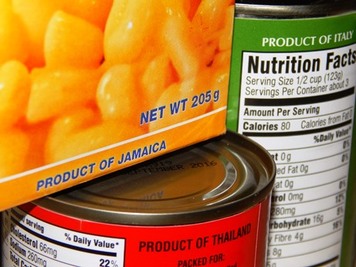
Once again, there is a lot of chatter about how much buying Jamaican can save the country’s economy. This renewed Buy Jamaica Campaign points to an urgent need to save ourselves by supporting Jamaican manufacturers and reducing our support of other economies with the purchase of foreign goods.
If you’ve been paying attention in the last few years, you will recall that this is not the first or even the second time there has been a panicked call to buy Jamaican, with corporate suits claiming they want to dispel the myth that Jamaican products are inferior or more expensive than their imported counterparts.
Why then, are Jamaicans so averse to buying their own?
First, for a Buy Jamaica campaign to be successful, local companies have to start being truthful with the Jamaican consumer about which product is really Jamaican. In fact, there are a lot of so called “Jamaican” products that are only Jamaican by naturalization. They are not made in Jamaica, though they prominently display the packaging and logo of well-established Jamaican companies. If you take a careful read of the label, however, you will clearly see that you are in fact consuming a foreign made product that is simply dressed up in packaging from a local company.
From mackerel from Thailand, beans from Italy, and soap from Trinidad, several of these products are on our supermarket shelves right now proudly bearing the labels of Jamaican companies. Even with farmers in St. Elizabeth struggling to find markets for their produce, our “Jamaican” canned mixed vegetables are a product of the USA.
There is no doubt that these Jamaican companies contribute immensely to the local economy through jobs, purchasing supplies, and paying taxes. On the other hand, in the spirit of the information age, it’s time for full disclosure.
Before you ask the Jamaican consumer to buy Jamaican, stop trying to sell us puss inna bag.
It would be nice to see more people going into the markets to get food supplies and cut down on the tins.
Yes. It’s a culture that will require much more than just announcing a “Buy Jamaican” campaign. Farmers must get support to reduce their cost of production, get their goods to market easier, and make costs cheaper for consumers.